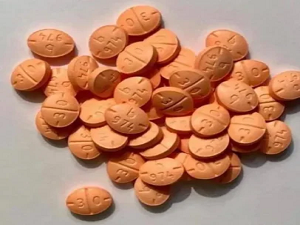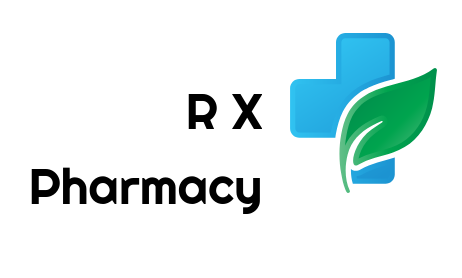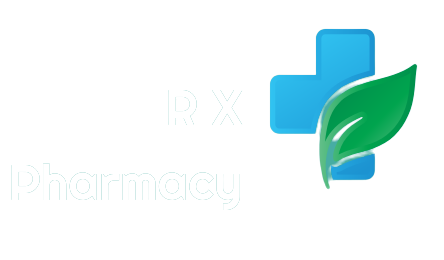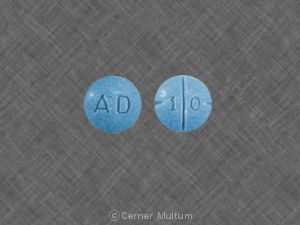Welcome To RxPharmacy101 !

ADHD
- Home
- ADHD

How To Cure ADHD
Attention deficit hyperactivity disorder is a neurodevelopmental disorder that affects millions of children and adults worldwide. In this article, we explore the causes of ADHD, how it can be treated and managed, and the benefits of medical oversight.
What is ADHD?
ADHD stands for Attention Deficit Hyperactivity Disorder. It is a mental disorder that has a lot of people wondering, “What is it?” ADHD is classified as a neurobiological disorder. It is characterized by problems with focus, hyperactivity, and impulsiveness. ADHD can significantly affect daily life, including work, school, and social interactions.
There is no single cause of Attention deficit hyperactivity disorder. However, researchers believe that genetics and environmental factors play a role in its development. Some possible environmental factors that may increase the risk of developing ADHD include exposure to toxins (such as lead), experiencing family violence, and living in poverty.
Attention deficit hyperactivity disorder affects both boys and girls equally. However, girls are more likely to have comorbid conditions such as anxiety and depression, which can make ADHD even more difficult to manage.
There is currently no cure for Attention deficit hyperactivity disorder. However, there are treatments that can help improve symptoms. Treatment options include medication, therapy, behavior modification techniques, and supplements.
If you or someone you know suffers from ADHD and wants to learn more about the condition or find resources to help manage it, please visit our website or blog section for more information.”
Symptoms of ADHD
ADHD is a neurological disorder that affects focus, attention, and hyperactivity. Symptoms can vary from person to person, and can range from mild to severe. However, there are some common symptoms of Attention deficit hyperactivity disorder that most people experience at some point in their lives. These symptoms include: difficulty paying attention, being easily distracted, poor concentration, and being unable to stay on task. Many people with ADHD also experience problems with impulse control, mood swings, and anxiety.
There is no one single cause for Attention deficit hyperactivity disorder, but it is believed to be caused by a combination of genetic and environmental factors. Some common environmental factors that have been linked with ADHD include exposure to lead or other toxins during development, living in a stressful environment, and living with parents who have the disorder. Although there is no cure for ADHD, there are treatments available that can help manage the symptoms. Some of the most common treatments include medication, therapy, behavioral interventions, and accommodations/ modifications in work or school settings.
How to Manage Your ADHD Symptoms
There are many different ways to manage ADHD symptoms. Here are some tips to help you:
– Start by trying a self-monitoring tool. This can help you track your progress and identify areas where you need to work on more. There are many different options available, so find one that suits your needs and sticks with it.
– Make sure you have enough sleep. Getting enough sleep is essential for people with Attention deficit hyperactivity disorder, as it helps to regulate their mood and attention span. Try to get a good night’s sleep every night.
– Exercise regularly. Exercise has been shown to be helpful for people with Attention deficit hyperactivity disorder, as it helps to improve focus and concentration, as well as reduce anxiety and stress levels. Exercise should be moderate in intensity and short in duration, so that it doesn’t overtax the body.
– Eat a balanced diet. Eating a healthy diet is important for everyone, but it’s particularly important for people with Attention deficit hyperactivity disorderbecause it can help to regulate moods and improve cognitive function. try to include plenty of fruits and vegetables, protein sources, whole grains and low-fat foods in your diet.
Treating ADHD the Natural Way
There are many ways to treat ADHD, but a lot can be done naturally. One way is to eat right and get enough exercise. Regular exercise helps to improve focus and concentration, both of which are common symptoms of Attention deficit hyperactivity disorder. Additionally, it has been found that eating healthy foods can help control hyperactivity and impulsiveness. In fact, research has shown that children who have controlled sugar levels and adequate protein intake are less likely to have ADHD. Some other natural treatments for ADHD include:
-Fish oil supplements: These supplements have been shown to help improve focus and concentration in those with Attention deficit hyperactivity disorder.
-Herbal remedies: There are many herbal remedies that have been used for centuries to treat various ailments. Some people believe that some of these remedies can also help treat ADHD. However, more research is needed before any definite conclusions can be made.
– Meditation: Meditation has been shown to improve focus, concentration, and mood in those with ADHD. It also helps people learn how to calm down and relax their minds.
Related Articles and Resources
If you are looking for information on how to cure ADHD, you have come to the right place. Here we will list some of the best resources available to help you get started.
1. ADHD adults: What you need to know
This article provides key information for adults who have ADHD, including advice on coping and self-care.
2. How to self-diagnose Attention deficit hyperactivity disorder
This guide walks you through the process of diagnosing your own Attention deficit hyperactivity disorder, based on your symptoms and lifestyle.
3. 10 essential tips for living with Attention deficit hyperactivity disorder
This article offers helpful advice for living with ADHD, including tips on how to manage stress and stay organized.
4. The top 10 books about Attention deficit hyperactivity disorder
This list includes some of the best books about ADHD that are available today. These titles can provide valuable information and guidance on how to overcome the challenges associated with this disorder.
- 100% Secure delivery without contacting the courier



